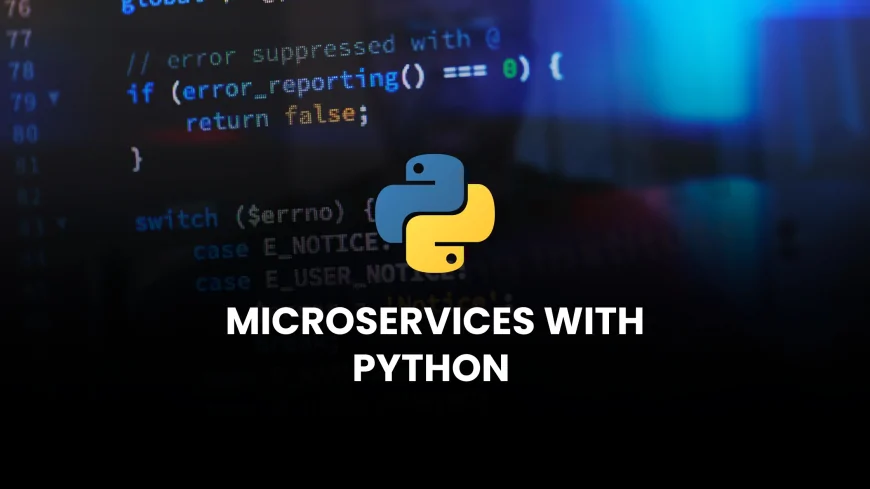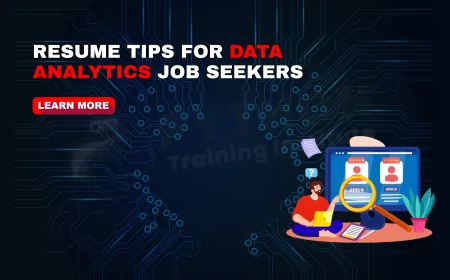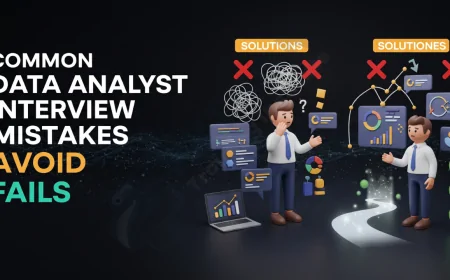Microservices Development with Python Course Pune | Python Microservices Architecture Training in Pune
Join Microservices Development with Python Course in Pune. Learn Flask, FastAPI, Docker, REST APIs, and build scalable backend applications.

Table of Contents
- Introduction
- Why Learn Microservices with Python?
- Key Concepts Covered
- Frameworks & Tools You Will Learn
- Course Modules and Topics
- Real-World Projects You Will Build
- Who Should Enroll?
- Industry Demand for Python Microservices
- Top Institutes Offering This Course in Pune
- Course Duration & Fee Structure
- Certification & Job Support
- Online & Offline Learning Options
- Frequently Asked Questions (FAQs)
- Conclusion
Introduction
In today’s software development environment, microservices architecture is critical for building scalable and efficient backend systems. Python's integration with FastAPI and Flask allows for agile, clean, and manageable microservices development. The Microservices Development with Python Course in Pune is a project-based training program that teaches you how to build independent services, design RESTful APIs, use Docker containers, and implement microservice communication strategies.
Why Learn Microservices with Python?
Microservices allow you to break large applications into smaller, manageable components. Python is the ideal language for this due to its simple syntax, rich libraries, and rapid development speed.
- Perfect for cloud-native architecture
- Enables modular development and faster deployments
- Improves scalability and reliability of applications
- Easy API design with Flask/FastAPI
- Enables smooth deployment of microservices using Docker and Kubernetes across cloud environments.
Key Concepts Covered
- Microservices architecture and design principles
- Python RESTful API development
- Service discovery and communication (HTTP/gRPC)
- Containerization with Docker
- Orchestration basics using Kubernetes (intro level)
- Logging, monitoring, and testing services
Frameworks & Tools You Will Learn
- Flask – For lightweight APIs and microservices
- FastAPI – For high-performance asynchronous APIs
- Docker – For containerization and deployment
- PostgreSQL/MySQL – For service-specific data storage
- Celery + RabbitMQ – Implement asynchronous background processing using Celery with RabbitMQ in your Python applications.
- JWT & OAuth2 – For user authentication and security
- Swagger/OpenAPI – For API documentation
Course Modules and Topics
- Introduction to Microservices and Python Setup
- API Building with Flask & FastAPI
- Containerizing Python Services with Docker
- Managing State and Stateless Services
- Connecting Services with REST/gRPC
- Securing APIs with JWT and OAuth
- Message Queues and Async Communication (RabbitMQ)
- Logging, Error Handling, and Unit Testing
- CI/CD Pipeline Basics for Microservices
- Capstone Project – Full Microservice Deployment
Real-World Projects You Will Build
- User authentication and authorization service
- Product catalog service and search APIs
- Order management microservice with async processing
- Email notification microservice with Celery
- Containerized deployment using Docker Compose
Who Should Enroll?
- Backend Python developers
- Software engineers moving to microservice architecture
- DevOps professionals aiming to implement Python-based services
- Final-year students or freshers seeking practical experience
Industry Demand for Python Microservices
Pune’s tech ecosystem—especially in Hinjewadi, Baner, and Kharadi—is rapidly shifting towards cloud-native development. Startups and enterprise software companies are actively recruiting developers skilled in Python microservices, REST APIs, and containerization. Python’s flexibility and ease of integration with DevOps tools make it a top skill in the job market.
Top Institutes Offering This Course in Pune
- WebAsha Technologies – Comprehensive training in Flask, FastAPI, Docker with real-world capstone projects and placement support.
Course Duration & Fee Structure
- Duration: 6–10 weeks (weekend and weekday options)
- Fees: ₹15,000 to ₹35,000 depending on institute and project depth
Certification & Job Support
- Course completion certificate with project endorsement
- GitHub project portfolio and resume building
- Mock interviews, job referrals, and placement assistance
Online & Offline Learning Options
- Live online interactive sessions with recording access
- Offline classroom batches in Pune (Wakad, Aundh, Shivaji Nagar)
- Flexible weekend and evening batch timings available
Frequently Asked Questions (FAQs)
1. What is microservices architecture?
It’s a method of developing software systems as a suite of small, independent services communicating via APIs.
2. Do I need to know Docker before joining?
No, Docker basics are taught as part of the training.
3. Which Python framework is best for microservices?
Flask is lightweight and flexible; FastAPI is fast and supports async I/O—both are great for microservices.
4. Will I get a certificate?
Yes, after course completion and project submission.
5. Is this course suitable for beginners?
Basic Python knowledge is required, but advanced microservices concepts will be taught from scratch.
6. Will I work on real-world projects?
Yes, you’ll build production-level services and APIs with deployment experience.
7. Can I take this course online?
Yes, institutes offer live and recorded online sessions with full support.
8. What tools are used in the course?
Python, Flask, FastAPI, Docker, PostgreSQL, Celery, RabbitMQ, GitHub, Swagger, and more.
9. Do you teach deployment?
Yes, services will be deployed using Docker Compose and cloud platforms.
10. What is the average salary after this course?
Python microservice developers in Pune earn ₹5–10 LPA based on experience and project skills.
11. Do I need a computer to join?
Yes, you’ll need a computer to run Python, Docker, and your projects locally.
12. Is FastAPI better than Flask?
FastAPI is newer, faster, and supports async I/O. Flask is simpler and widely used.
13. Will I learn API security?
Yes, using JWT tokens and OAuth2 authentication.
14. What databases are covered?
PostgreSQL, MySQL, and SQLite for backend services.
15. Do I need prior web development knowledge?
No, but basic understanding of APIs and HTTP is helpful.
16. Are the trainers industry professionals?
Yes, most trainers have 5–12 years of development experience.
17. Is there job placement support?
Yes, leading institutes offer resume prep, mock interviews, and job referrals.
18. Can I work freelance with these skills?
Absolutely. Python microservices are in high demand for startups and freelance API projects.
19. Will I work on CI/CD pipelines?
Yes, you’ll be introduced to GitHub Actions or Jenkins for deployment automation.
20. What makes WebAsha the top choice?
WebAsha offers deep hands-on experience, expert trainers, flexible schedules, and strong placement support in Pune.
Conclusion
Microservices Development with Python in Pune is a high-value training course for anyone aiming to master backend API development, service orchestration, and cloud-native architecture. With real-world projects, tools like Flask, FastAPI, Docker, and RabbitMQ, and expert-led instruction, this course prepares you for a future-proof role in the tech industry. Whether you're a student, developer, or DevOps engineer—this training sets you up for success in modern software architecture.
What's Your Reaction?
 Like
0
Like
0
 Dislike
0
Dislike
0
 Love
0
Love
0
 Funny
0
Funny
0
 Angry
0
Angry
0
 Sad
0
Sad
0
 Wow
0
Wow
0














